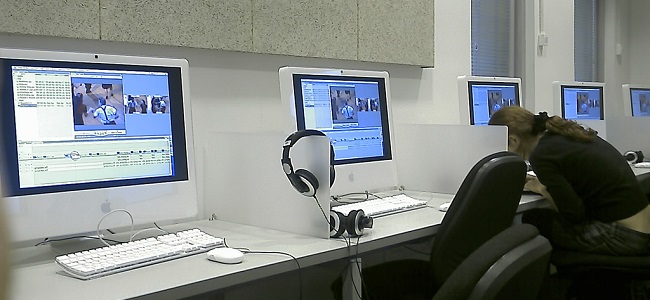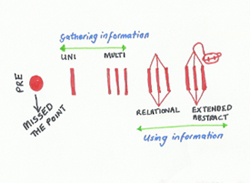Kristy Lundström, rektor (head of school): We are always trying to find ways to create the “perfect” learning environment for our students. The challenge is that the “perfect” environment can look different from student to student, from course to course, and from time to time. I want us to stop thinking “class” and think “student”. With this in mind, the question shifts from trying to find the perfect solution to trying to find a flexible framework where teachers are empowered to make the strategic instructional decisions that would work for just their group of students. At our school, we have designated an instructional designer to explore possible methods for how this could work. We call it our BLE (Blended Learning Environment) project. Meet Hanna.
When it comes to education, it seems that everyone has their own idea about which methods work best in the classroom. Should they be put into mixed groups or streamed by ability? Should we block-schedule lessons? A new website called the Toolkit can help us find the answers to those questions based on evidence, rather than opinion.
Media Studies is a terrific subject, one that can offer terrific insight into journalism, the arts and more. Andrew Miller, teacher of Creative Media & Film at Queen Mary's College in Basingstoke, looks at why the subject is seen as being soft, and what Media Studies teachers can do to change that.

With a new academic year comes a new cohort of AS Media Studies students, and I ask them to produce a 750-word essay entitled ‘Why I chose Media Studies’. This introductory activity is aimed to give me an insight into each learner’s writing ability and style, but it has proven to have other benefits. The majority of learners will write about how the Media industries are an important part of the world that act as a force of good, but many have written about how they had to do another subject to make up a full programme, and how the person doing their enrolment said Media Studies would be “easy”.

I have it on good authority that autonomy is a problem when our sixth formers leave us for university life.
Helping pupils recognise their learning and find ways to enhance their own exploration of the world in which they live, encourages autonomy; this must be developed earlier if we want to avoid spoon-feeding GCSE students and sixth formers forever, damaging their chances when their apron strings are finally cut.
One of the reasons that I use SOLO is that it is an accessible way to get pupils to see and understand their own thinking. SOLO provides teachers and pupils with a clear path to higher order thinking.
Students are taught the features of each level and how each level leads to the next; with development, our students are able to use their understanding of their own thinking to forward their learning into synthesis.

A community-driven platform for showcasing the latest innovations and voices in schools
Pioneer House
North Road
Ellesmere Port
CH65 1AD
United Kingdom